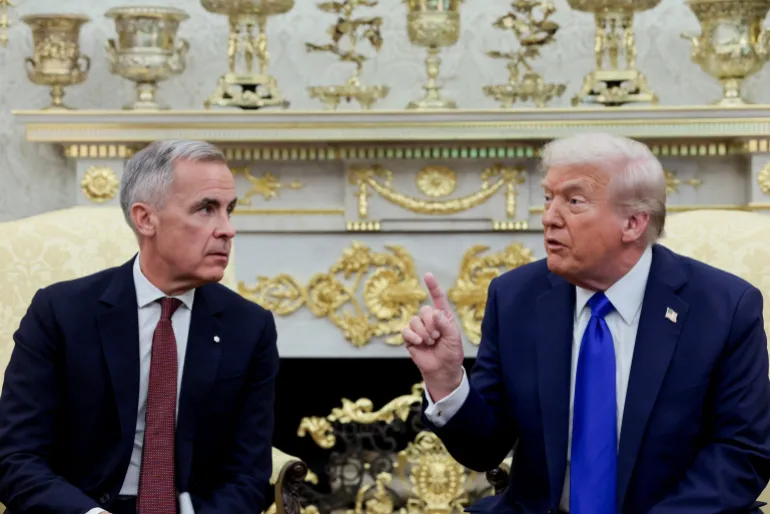Canadian PM Mark Carney clears budget vote, averting snap elections | Government News
A handful of opposition abstentions allowed Carney and minority Liberals to advance a deficit-boosting budget aimed at countering US tariffs.
Published On 18 Nov 2025
Prime Minister Mark Carney’s minority government narrowly survived a confidence vote on Monday as Canadian lawmakers endorsed a motion to begin debating his first federal budget – a result that avoids the prospect of a second election in less than a year.
The House of Commons voted 170-168 to advance study of the fiscal plan. While further votes are expected in the coming months, the slim victory signals that the budget is likely to be approved eventually.
Tonight, the House of Commons has voted to pass Budget 2025.
It’s time to work together to deliver on this plan — to protect our communities, empower Canadians with new opportunities, and build Canada strong.
— Mark Carney (@MarkJCarney) November 18, 2025
“It’s time to work together to deliver on this plan – to protect our communities, empower Canadians with new opportunities, and build Canada strong,” Carney said on X, arguing that his spending blueprint would help fortify the economy against escalating United States tariffs.
Recommended Stories
list of 4 itemsend of list
Carney has repeatedly cast the budget as a “generational” chance to reinforce Canada’s economic resilience and to reduce reliance on trade with the US.
The proposal includes a near doubling of Canada’s deficit to 78.3 billion Canadian dollars ($55.5bn) with major outlays aimed at countering US trade measures and supporting defence and housing initiatives. The prime minister has insisted that higher deficit spending is essential to cushion the impact of US President Donald Trump’s tariffs. While most bilateral trade remains tariff-free under an existing North American trade agreement, US levies on automobiles, steel and aluminium have struck significant sectors of the Canadian economy.

According to Carney, a former central banker, internal forecasts show that “US tariffs and the associated uncertainty will cost Canadians around 1.8 percent of our GDP [gross domestic product]”.
The Liberals, a few seats short of a majority in the 343-seat House of Commons, relied on abstentions from several opposition members who were reluctant to trigger early elections. Recent polling suggested Carney’s Liberals would remain in power if Canadians were sent back to the polls.
Carney was elected to a full term in April after campaigning on a promise to challenge Washington’s protectionist turn. Meanwhile, the Conservative Party, the official opposition, has been wrestling with internal divisions since its defeat, and leader Pierre Poilievre faces a formal review of his performance early next year.
Poilievre has sharply criticised the government’s spending plans, branding the fiscal package a “credit card budget”.
The left-leaning New Democratic Party (NDP) has also expressed concerns, arguing that the proposal fails to adequately address unemployment, the housing crisis and the cost-of-living pressures faced by many Canadian families.
NDP interim leader Don Davies said the party accepted that blocking the budget would push the country back into an unwanted election cycle, explaining why two of its MPs ultimately abstained.
It was “clear that Canadians do not want an election right now … while we still face an existential threat from the Trump administration”, he said.
“Parliamentarians decided to put Canada first”, Finance Minister Francois-Philippe Champagne said.
Polling before Monday’s vote suggested Canadians broadly shared this view. A November survey by the analytics firm Leger found that one in five respondents supported immediate elections while half said they were satisfied with Carney’s leadership.